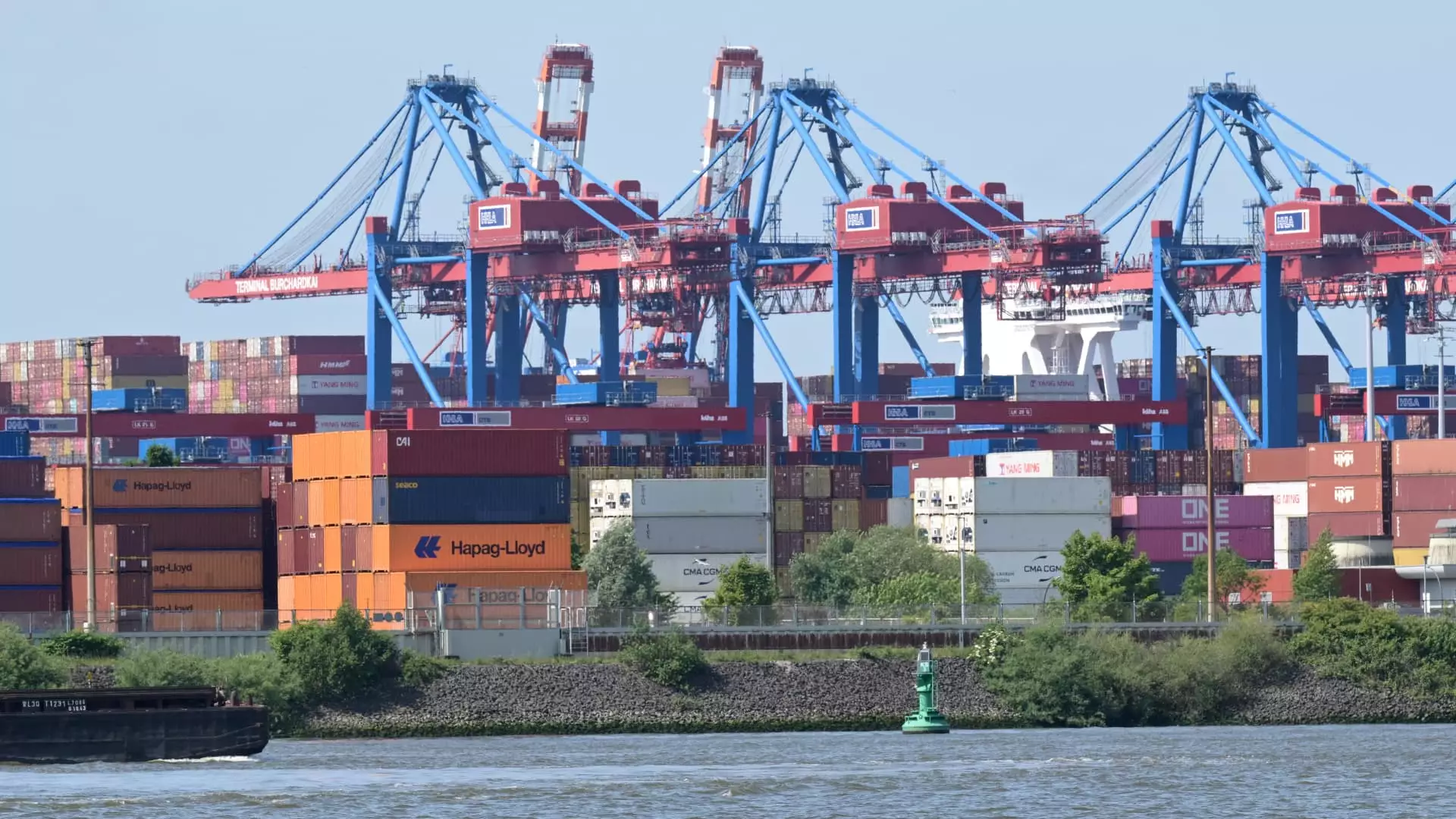As political and economic tensions escalate between the United States and the European Union, the world watches anxiously, knowing that the fate of one of the most vital trade relationships hangs in a precarious balance. With looming deadlines and no concrete agreement in sight, the risk of a disruptive trade war looms large, threatening to unravel years of economic cooperation built on shared interests and mutual benefits. What’s particularly concerning is the aggressive posture each side seems willing to adopt if negotiations falter, risking an all-out confrontation that could set back global stability for years to come.
The core issue revolves around tariffs—protections that are historically short-sighted but politically potent. The Trump administration’s vocal criticisms of the EU’s trade policies have intensified the pressure, framing the bloc as an unfair opponent profiting at America’s expense. Meanwhile, EU policymakers, led by Ursula von der Leyen, are playing a delicate game: seeking to preserve their economic interests while not appearing too submissive to American demands. The fact that no substantial deal has emerged even as the July 9 deadline approaches is a testament to how complex, contentious, and perhaps ultimately moot these negotiations have become.
The potential consequences extend far beyond mere numbers. A failure to reach an agreement could trigger retaliatory tariffs from both sides—escalating into a trade war that stunts economic growth, hampers innovation, and jeopardizes thousands of jobs on both continents. It’s not an exaggeration to say that these negotiations, or the lack thereof, serve as a litmus test for the resilience of multilateral trade systems established post-World War II. The stakes are high, and the inaction or indecisiveness displayed by both parties reveals a troubling inability to see beyond short-term nationalistic agendas to the long-term benefits of collaboration.
Economic Power Plays or Political Posturing?
From the economic perspective, the EU’s massive trade surplus with the U.S.—nearly 200 billion euros in goods alone—paints a picture of an unequal relationship that compounds American frustrations. Trump’s rhetoric has conflated trade deficits with unfairness, ignoring the complex, interconnected nature of international commerce. Meanwhile, the EU’s strong trade surplus, combined with its deficit in services, underscores how interdependent both economies truly are, which only complicates the negotiations further.
However, what’s missing from the discourse is a genuine commitment to the broader strategic partnership that could elevate both sides. Instead, negotiations are mired in a zero-sum mentality that perceives tariffs and protectionism as tools to extract concessions rather than as means to foster mutual growth. It’s a shortsighted view that disregards the profound benefits of an integrated transatlantic economy—an economy that, despite its flaws, has the capacity to shape global standards for fair, sustainable, and equitable trade.
European leaders, under pressure to hold the line, have acknowledged the impossibility of hammering out a detailed trade agreement within the rushed 90-day period. Their approach hints at a strategic refusal to give in to American demands that could compromise European sovereignty and economic integrity. Yet, this stance risks being seen as obstinate rather than pragmatic, further eroding trust at a time when cooperation is most urgently needed.
The Danger of Strategic Complacency
Expert voices warn that both sides are dangerously complacent, assuming that a minimal “heads of terms” deal is sufficient to stave off disaster. This flimsy approach, often a cover for deeper disagreements, reflects a fundamental misunderstanding of the interwoven economic realities. A superficial agreement risks becoming a facsimile of negotiated harmony that ultimately fails to address underlying issues.
Unfortunately, the current political climate does little to inspire optimism. With leaders seemingly more focused on domestic optics than meaningful international collaboration, the long-term consequences are not merely economic but deeply geopolitical. A weakened transatlantic alliance would send a troubling message to emerging powers and global institutions: that economic diplomacy is expendable, and strategic partnerships are fragile at best.
The liberal center must advocate for a balanced approach—one that defends European interests without capitulating to American pressure, while also recognizing the importance of multilateral dialogue over unilateral threats. The future of transatlantic trade depends on a nuanced understanding that cooperation, not conflict, remains the best path forward—yet, time is quickly running out.

